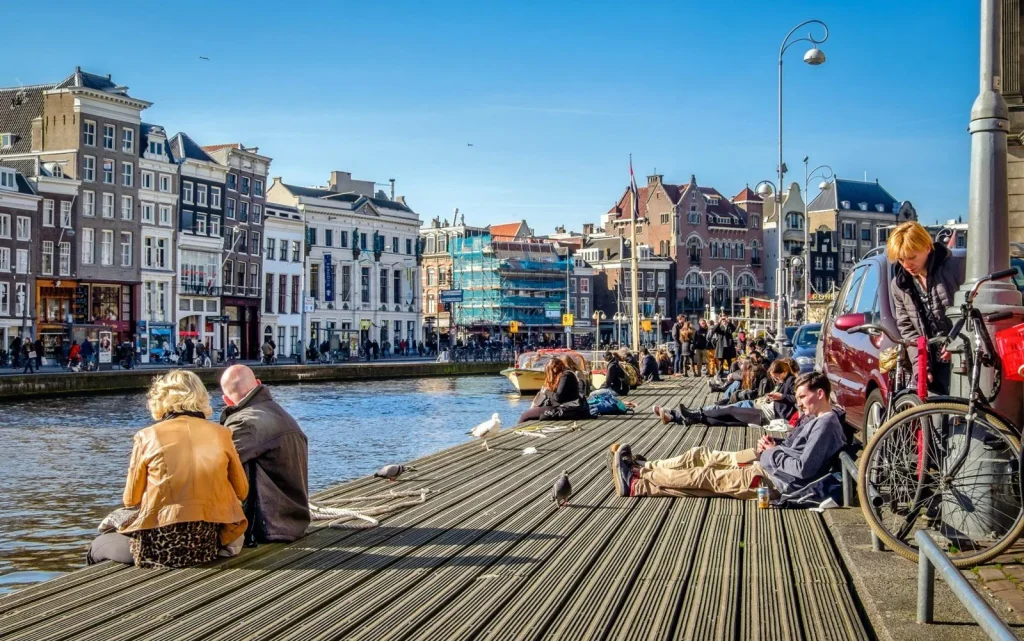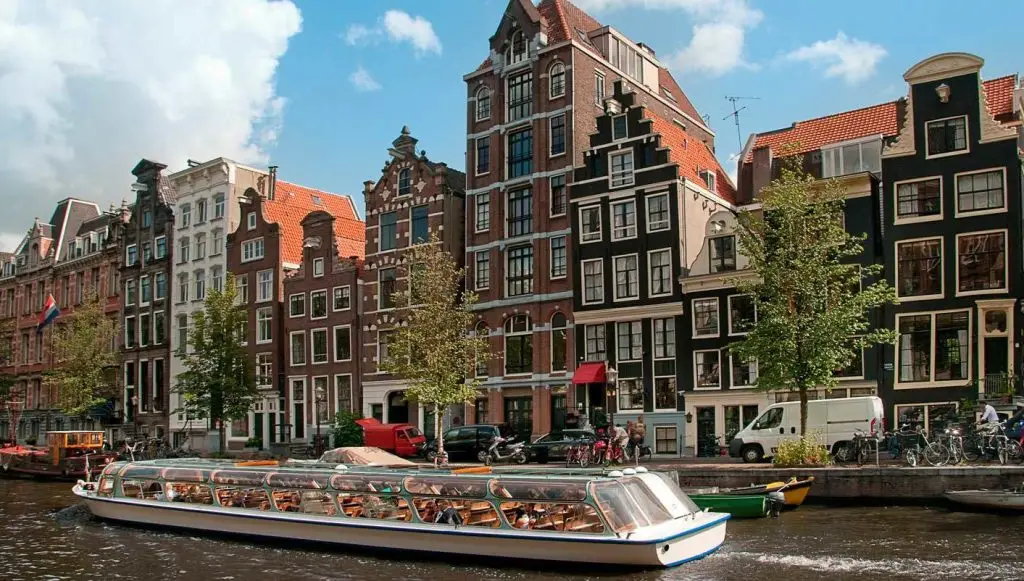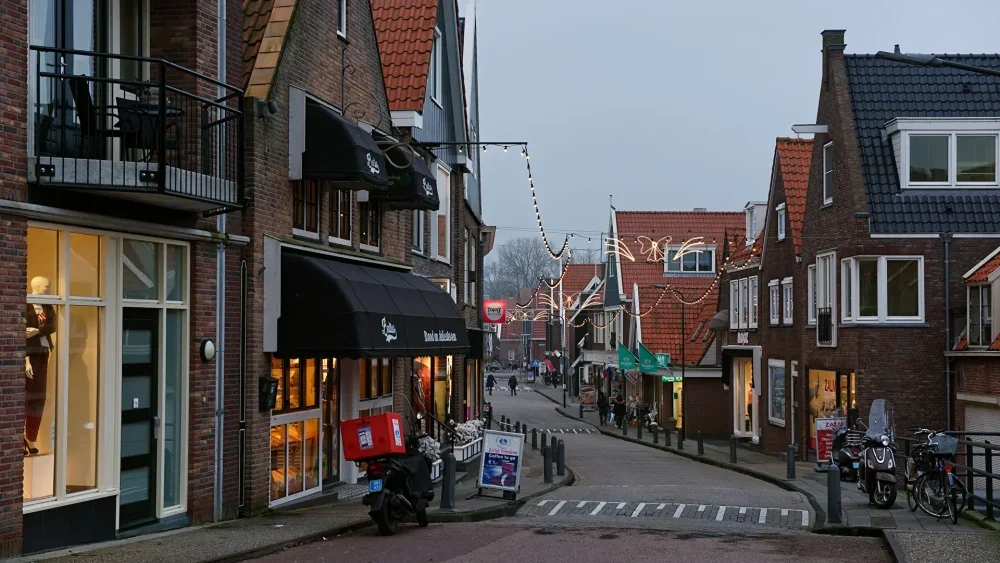The beautiful picture of canals, tulips and windmills is only part of the reality. Life in the Netherlands is full of both pleasant surprises and unexpected difficulties. The country offers unique conditions, but requires careful preparation and adaptation. Let’s look at the key features of this kingdom, advantages and disadvantages for those who are thinking of moving.
Moving to the Netherlands: what you need to know about living abroad
Moving to this country requires preparing documents, choosing a city and adapting to a new culture. The Netherlands is known for its high level of bureaucracy, so it is important to know every step of the process in advance.
Documents and residence permits in the Netherlands
For long-term residence in the country it is necessary to apply for a residence permit (Permit to Stay). There are different categories of permits suitable for specific relocation purposes:
- The working residence permit is suitable for highly qualified professionals. To obtain it, you need an invitation from a Dutch employer and a salary that meets the minimum requirements (from 3000 € per month for professionals over 30 years of age).
- A student visa is issued when you enrol in a university or college. A letter of enrolment, proof of financial solvency (about 10,000 € per year) and health insurance are required.
- Residence permits for investors are granted for investments of 1.25 million euros or more in the country’s economy. The money must be invested in local companies or start-ups.
It takes from 3 to 6 months to obtain a residence permit. The process requires a full package of documents: passport, medical insurance, income certificates and other papers. An incomplete package or errors in the documents will result in refusal or delay of the process.
How to choose a city to live in the Netherlands
Each region has its own characteristics, climate, cost of living and professional opportunities:
- Amsterdam is the capital, where museums, international companies and start-ups are centred. High salaries are compensated by expensive rent (a one-room flat in the centre costs from 1500 €).
- Rotterdam is a city of modern skyscrapers and Europe’s largest port. The industrial centre of the Netherlands with a developed economy and moderate cost of living.
- The Hague is the political capital, home to embassies, international courts and major government offices. An excellent choice for lawyers, diplomats and civil servants.
- Utrecht is a student centre with thousands of years of history. The city is characterised by a well-developed infrastructure and moderate housing prices.
Smaller cities such as Leiden, Haarlem or Eindhoven offer a quieter atmosphere and less competition on the labour market.
The pros of living in the Netherlands
 What makes life in the Netherlands attractive for Russian emigrants? A high standard of living, a stable economy and an advanced social system attract thousands of immigrants every year.
What makes life in the Netherlands attractive for Russian emigrants? A high standard of living, a stable economy and an advanced social system attract thousands of immigrants every year.
Social support and standard of living
The Dutch social system provides residents with stability and protection at all stages of life. The state supports not only working citizens, but also those who are temporarily in a difficult situation:
- Health insurance is compulsory for all residents of the country. The basic package costs about 120 € per month and covers visits to general practitioners, check-ups and emergency care. Additional insurance allows you to get dental and physiotherapy services.
- Unemployment benefit is 70 per cent of the last salary and is paid for up to 24 months. You must have worked for at least 26 weeks in the last year in order to receive the benefit.
- The pension system in the country is based on three levels: state pension, corporate pension funds and personal savings. The average pension is about 1100 € per month.
Social programmes include support for families, students and people with disabilities. The Dutch state actively cares for the well-being of its citizens, creating conditions for a stable and comfortable life.
Economy and job opportunities
The country’s economy is among the top 20 most developed economies in the world. Major industries include logistics, information technology, finance and agriculture. Major companies such as Shell, Philips and Unilever offer high-paying jobs for professionals from different countries.
The average salary is 2800 € after tax. In the IT sector, specialists earn between 3500 and 6000 € per month, engineers around 4000 € and doctors up to 7000 €. The working week lasts 36-40 hours, but many companies offer flexible schedules and the possibility of remote work.
High cost of living in the Netherlands
Life in the Netherlands requires considerable financial investment, especially for emigrants who are used to Russian realities. The daily costs of housing, transport, groceries and services can surprise even those who have prepared themselves for the move.
Housing is one of the biggest expense items. Renting a one-room flat in the centre of Amsterdam costs from 1500 to 1800 euros per month. On the outskirts, the cost drops to €1000 to €1200, but accessibility to public transport becomes critical. In other major cities such as Rotterdam and The Hague, renting a one-bedroom apartment costs 1200-1400 euros in the centre and 900-1000 euros on the periphery. Utility bills range from €150 to €250 per month, including heating, electricity, water and internet.
Food prices are also higher than the European average. For example:
- Bread – 1,5 € per loaf.
- Milk – €1.2 per litre.
- Chicken fillet – 8 € per kilo.
- Fruits and vegetables cost between €2 and €4 per kilo depending on the season.
A visit to a café or restaurant will cost 15-20 € per person. A cup of coffee costs around €3, and lunch at a mid-range establishment costs between €20 and €30. Transport costs are also high. A monthly pass for public transport in Amsterdam costs about 90 €, and a single trip costs 3 €. Petrol costs around €2 per litre. Parking in the city centre can cost up to 7 € per hour. Despite the high costs, the country offers quality services and a high level of comfort.
Property in the Netherlands for Russians
Buying or renting a home is one of the main issues when moving. Living in the Netherlands requires an understanding of the local property market, which is highly expensive and has strict rules.
How to find and arrange accommodation
The process of finding a facility can take several months due to high competition. In large cities, demand for flats exceeds supply, which makes the rental process challenging.
The main stages of the housing search:
- Choice of region and city. Amsterdam and The Hague are suitable for those looking to work for international companies. Rotterdam is suitable for engineers and logistics specialists.
- Use of online platforms. Funda.nl, Pararius.com, Kamernet.nl. These sites offer up-to-date adverts from owners and agencies.
- Document preparation. Passport, proof of income, employment contract, certificate of trustworthiness from the previous landlord.
- Formalisation of the lease agreement. The deposit is usually the amount of two months’ rent.
The average cost of a flat in Amsterdam is around €500,000. Mortgages are granted at 2-3% per annum, but require a down payment of 10-20% of the property value.
Additional Costs:
- Purchase tax – 2% of the property value.
- Notary services – from 1000 to 2000 €.
- The realtor’s commission is about 1% of the home’s value.
Conclusion
 Life in the Netherlands combines a high level of comfort with the difficulties of adaptation. High prices, bureaucracy and climatic peculiarities can be a challenge for new emigrants. However, social security, stable economy, quality education and developed infrastructure compensate for these difficulties.
Life in the Netherlands combines a high level of comfort with the difficulties of adaptation. High prices, bureaucracy and climatic peculiarities can be a challenge for new emigrants. However, social security, stable economy, quality education and developed infrastructure compensate for these difficulties.
 en
en  ru
ru  de
de  ar
ar  es
es  nl
nl  hi
hi  fr
fr  it
it  pt
pt  el
el 









